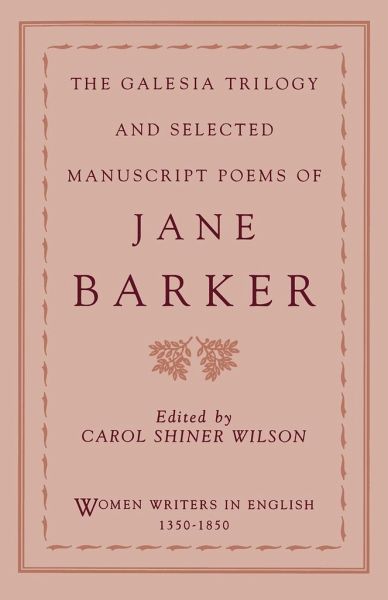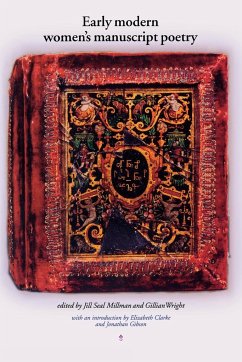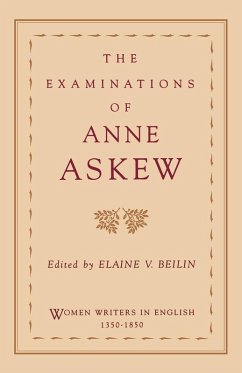
The Galesia Trilogy and Selected Manuscript Poems of Jane Barker
Versandkostenfrei!
Versandfertig in 1-2 Wochen
73,99 €
inkl. MwSt.
Weitere Ausgaben:

PAYBACK Punkte
37 °P sammeln!
Novelist, religious convert, political poet and sometime Jacobite spy, Barker wrote prolifically on a remarkable variety of subjects. "A Patch-Work Screen for the Ladies" (1723) and "The Lining of the Patch-Work Screen" (1726) achieved immense popularity upon first appearance. Hybrid in genre, they include realistic stories, and romances interspersed with poems, hymns, odes, recipes and religious and philosophical reflections that survey and critique the turbulent social, economic and political scene of early-18th-century England.
Novelist, poet, manager of farm property, convert to Roman Catholicism, Jacobite in exile in France, and woman unmarried by choice, Jane Barker (1652-1732) wrote on a remarkable variety of subjects and displayed an equally remarkable variety of genres. Her multifaceted work is important in understanding the woman artist, the shifting literary marketplace, and the response of women to a society torn apart by endless wars, religious intolerance, and a legal and economic system that consistently disadvantaged them. Love Intrigues (1713), A Patch-Work Screen for the Ladies (1723) and The Lining of the Patch-Work Screen (1726), the three novels that comprise The Galesia Trilogy, attest to her talents. In all three works, Galesia is Barker's semi- autobiographical narrator and heroine, whose voice becomes like that of a friend to the reader. The first work, an anti-romance celebrated for its psychological realism, captures the confusion and ambivalence of the young Galesia as she is courted by her rakish cousin. The second and third works include a dynamic range of pieces: popular tales of seduced nuns and lust for the high life in London, and more personal poems about Galesia's choice of the artistic life and her practice of the healing arts. Barker brilliantly structures the narratives of the second and third novels as an embroidered patchwork screen, worked harmoniously by a community of women, to which Galesia stitches her artistic productions. This literary conceit, Barker asserts, equals anything developed by her male contemporaries in conveying the truths of human experience. Following the Trilogy, this edition includes several Barker poems, never before published, which prove particularly powerful in capturing life in exile after James II was deposed from the English throne by William of Orange in 1688. This latest addition to the Women Writers in English series will have strong appeal for scholars working in the history of the














